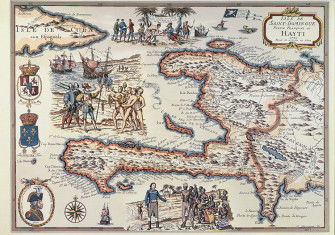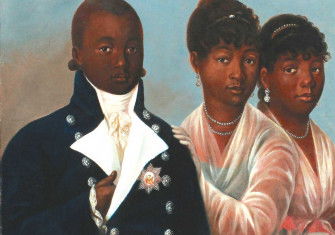André Rigaud: Napoleon’s Man in Haiti
An exiled revolutionary, André Rigaud’s return to the island of his birth changed Haiti’s political destiny. Was he sent back to help reinstate slavery? His enemies would have us believe so.

In 1893 the Black American playwright William Edgar Easton published Dessalines, a Dramatic Tale: A Single Chapter From Haiti’s History, a play about the Haitian Revolution. Ostensibly a biopic of independent Haiti’s founder General Jean-Jacques Dessalines, the play prominently featured another of the revolution’s notable figures: General André Rigaud, a free man of mixed French and African ancestry, described as a ‘mulatto’ in the parlance of the day. Off-stage, Rigaud is most infamous for his rivalry with Haiti’s best known revolutionary, Toussaint Louverture, but in Easton’s play Rigaud’s main rival is not Louverture (who does not appear as a character). While the heroic Dessalines fights the French to prevent them from reinstating slavery in the colony of Saint-Domingue, the too-trusting Rigaud fights, initially, on France’s behalf. Yet whether Rigaud’s foil is Louverture (as in the historical record) or Dessalines (as in Easton’s play), the accepted cause of the rivalry is always the same: Rigaud’s colour prejudice against Haiti’s Black revolutionaries.







